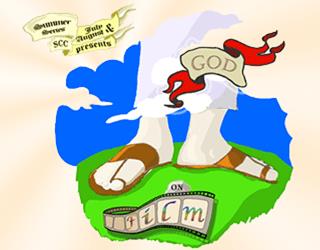
God on Film: Fantastic Four – Find Your Forte
Sycamore Creek Church
August 9/10, 2015
Tom Arthur
Peace friends!
Today we’re continuing in this series, God on Film. Each week we’re looking at a summer blockbuster and exploring something that movie evokes and what the Bible has to say about it. Today we’re looking at the movie, Fantastic Four.
So how many are there in the Fantastic Four? Yep. Four. Each one of the four have “unique physical capabilities.” The Thing has indestructible strength. Mister Fantastic has the unique physical capability of rubber stretch. The Human Torch has fire, and the Invisible Woman can turn, well, invisible as well as having the ability to project force fields.
If you got to choose one of those super powers, which one would you pick? How would you decide? How did each of the Fantastic Four decide? They didn’t. In the original storyline they are hit by cosmic rays in outer space. In this remake something happens during inter-dimensional travel. They don’t get to choose what special ability they have. It just happens to them.
You don’t decide either what special unique capabilities you have. You just have them. What are your unique capabilities? What about your unique spiritual capabilities? Today I’d like to take a look at the unique spiritual capabilities that each of us are given called spiritual gifts. Let’s begin with a definition:
Spiritual gifts are God-given natural or supernatural talents every Christian has that God uses to accomplish God’s purposes in and through the church.
That’s a thick definition so let’s unpack it.
God-given = These gifts are by God’s grace freely given. The Greek word behind the word “gift” is charism which you make recognize in the word “charismatic.” “Charism” means “gift.” Spiritual gifts are natural or supernatural talents. Sometimes they are very natural in appearance like knowledge or teaching. Other times they have a supernatural twist like healing. Either way they’re what we’re able to do, and what we’re good at doing. Every Christian has one or more spiritual gifts. Every person plays a part. But a part in what? A part in God’s purposes. Spiritual gifts are for accomplishing God’s rescue mission to the world. And God’s rescue mission happens primarily in and through the Church. Spiritual gifts are for equipping one another and reaching out into the world. So let’s hear that definition again:
Spiritual gifts are God-given natural or supernatural talents every Christian has that God uses to accomplish God’s purposes in and through the church.
Paul, the first missionary of the church and the author of many of the books of the Bible, says:
Now concerning spiritual gifts, brothers and sisters, I do not want you to be uninformed.
~1 Corinthians 12:1 NRSV
Paul wants us to know about spiritual gifts so we’re not uninformed or ignorant of our own and God’s purposes for spiritual gifts. One book that has been helpful to me over the last couple of months is a book by Peter Wagner called Discover Your Spiritual Gifts. Wagner writes:
“You need to know about your spiritual gifts if
- You are a Christian believer
- You believe that Jesus is your Lord and you want to love Him, please Him and follow Him in the best way possible; and
- You want your church to be a healthy, attractive growing group of people showing forth God’s love in your community.”
I think I want all three of those things. I suspect that you do too. So let’s go back to Paul and see what he teaches about Spiritual gifts. Paul writes about spiritual gifts in several different places but today we’re going to focus on his letter to the Christians who are in Rome. Here’s what he says:
And so, dear brothers and sisters, I plead with you to give your bodies to God because of all he has done for you. Let them be a living and holy sacrifice—the kind he will find acceptable. This is truly the way to worship him…
~Paul (Romans 12:1 NLT)
Have you ever considered that what you do with your bodies is worship. Worship isn’t just coming together on Sunday to sing and pray and hear teaching about the Bible. It’s also about how you use your body every day of the week. How your body interacts with other bodies around you is an act of worship.
Because of the privilege and authority God has given me, I give each of you this warning: Don’t think you are better than you really are. Be honest in your evaluation of yourselves, measuring yourselves by the faith God has given us.
~Paul (Romans 12:3 NLT)
Paul encourages us to have an honest humble appraisal of ourselves. You’re good at some things and other things you’re not so good at. Do you know what they are? Humility is having an accurate and true self-understanding. Paul is about to help us have that honest and true and humble self-understanding.
Just as our bodies have many parts and each part has a special function, so it is with Christ’s body. We are many parts of one body, and we all belong to each other.
~Paul (Romans 12:4-5 NLT)
Each of your body parts has a special function. In the same way, each of you has a special function in the church and the world. Each of you has a special function in God’s rescue mission to the world. And just like a human body, the individual body parts belong to each other.
In his grace, God has given us different gifts for doing certain things well.
~Paul (Romans 12:6 NLT)
These gifts and playing this role in the body is a God-given gift. It’s not something you earn. You just have it. Some things you do well, but not all things. That’s where the honesty and humility come in. What do you do well, and what do you not do so well?
So if God has given you the ability to prophesy, speak out with as much faith as God has given you. If your gift is serving others, serve them well. If you are a teacher, teach well. If your gift is to encourage others, be encouraging. If it is giving, give generously. If God has given you leadership ability, take the responsibility seriously. And if you have a gift for showing kindness to others, do it gladly.
~Paul (Romans 12:6-8 NLT)
Some of us have the gift of prophesy. Prophesy isn’t so much about telling the future, although it may be about that. The prophet in the Bible speaks from God’s perspective about when God’s people are in or out of the will of God. The rest of the gifts Paul mentions are more natural and obvious gifts: serving, teaching, encouraging, giving, leading, showing kindness. These all are spiritual gifts that God gives each one of us to accomplish God’s purposes in and through the church.
God’s General & Specific Call
Many people often come to me and want to know what God has called them to do in this world. Here’s the answer. God has a general call on each person’s life. That general call is basically the same for everyone: use your spiritual gifts. God gave you special talents, and God calls you to use those gifts. That’s God’s general call.
Then there’s God specific call. God’s specific call has to do with the specific ministry or area or location that you use those gifts. Some of you are called to use your gifts working with children. Others are called to the specific area of youth. Others are called to use their gifts in worship ministry. Others are called to use their gifts specifically with preaching or outreach or missions. In any case, God does not call someone to a ministry that God does not equip that person for doing. While the specific call may change (where you use your gifts in ministry), the general call does not (that you use your gifts).
Martin Luther, the 16th century Protestant reformer, taught “the priesthood of all believers.” It’s not that there’s a special profession called “pastor” or “priest” that does all the ministry. Rather, all who follow Jesus, all who are part of the body of Christ are pastors and priests. Each one of you has a role to play, not just some “professional Christian” we call the pastor.
How Many Spiritual Gifts are There?
Paul gives us three different lists of spiritual gifts in three different books of the Bible. Those lists are all different. I don’t think Paul was trying to be exhaustive when he wrote those lists. Then there are other places in the Bible where special gifts are listed. So I don’t think there is any one set list or number of gifts. One online tool we use at Sycamore Creek Church lists twenty-four gifts. Peter Wagner’s book lists twenty-eight. I don’t know what the exact number is, and I’m somewhat skeptical of any attempt to nail down an exact number. But this morning I want to talk about three of those gifts.
Singleness
The gift of singleness is the gift “to remain single and enjoy it and not suffer undue sexual temptation” (Wagner). Paul teaches it this way:
But I wish everyone were single, just as I am. Yet each person has a special gift from God, of one kind or another.
~1 Corinthians 7:7 NLT
It may seem odd to start our conversation with the gift of singleness. But I am beginning here because the largest group of people in the neighborhood right around our church is a group called “singles and starters.” Now let’s get very clear about the gift of singleness because sometimes we tell single people something like: “You must have the gift of singleness because you’re single.” That’s not true. Being single doesn’t mean you have the gift of singleness. It may just mean you haven’t yet met your spouse and life-partner. If you want to get married, you probably don’t have this gift. If you want to have sex, you probably don’t have this gift. If you are quite alright being single, then you may have this gift.
The gift of singleness does not stand alone. Yes, I said that. Singleness does not stand alone. We’re not talking about spinsters. Singleness is a gift that allows a deeper and fuller use of your other gifts that God uses to accomplish God’s purposes in and through the church. If you are single you have more time and more energy to focus less on your own family and more on the community around you. Let’s look at one person who had the gift of singleness: Georges Lemaître.
Who was Georges Lemaître? Georges Lemaître was a brilliant catholic priest in the 20th century. In 1920 he got his first PhD. Yes, I said “first.” It was titled “Approximation of functions of several real variables.” I have no idea what that means other than that Georges Lemaître was very smart. He got his PhD in 1920 and then was ordained a priest in 1923. In 1927 he went head to head with Einstein when he proposed the Expansion Theory of the Universe. Einstein said, “Your calculations are correct, but your physics is atrocious.” Georges Lemaître became the founder of the Big Bang Theory. Yes, a Christian priest came up with the Big Bang Theory. Turns out that while Einstein is more famous, Lemaître was right. Then in 1931 Lemaître got his second PhD which was titled, “The gravitational field in a fluid sphere of uniform invariant density according to the theory of relativity.” I don’t understand that any more than I understood the first!
OK, let’s unpack all this just for a moment. A married man with kids barely has time to finish one PhD let alone two. A married man with kids doesn’t go head to head with Einstein and win. A married man with kids doesn’t become a Catholic priest. Lemaître’s singleness allowed him to focus his time and energy (no pun intended) on advancing humanity’s understanding of the universe’s origins. His singleness was a gift that allowed him to use his other gifts on a deeper and fuller level. He enriched others with his gift of singleness. That’s the gift of singleness. Singleness allows you to use your other gifts in deeper and fuller ways for the benefit of God’s purposes in and through the church.
Hospitality
Wagner defines hospitality as the ability “to provide an open house and warm welcome for those in need of lodging.” Peter, one of Jesus’ closest friends taught:
Cheerfully share your home with those who need a meal or a place to stay.
~1 Peter 4:9 NLT
The person with the gift of hospitality is able to make people feel truly at home whether in their own home or elsewhere. They also are able to share their home for extended periods of time. This means be able to share the “mess” without apologizing. You don’t have to be a Martha Stewart.
Sarah and I have the gift of hospitality. For most of our married life we have had people living with us. We’re not alone. A couple of months ago we invited over for dinner everyone in our church that we know who is sharing their house with someone. It was good to sit around the table and share stories together. There are many in our church who have the gift of hospitality.
Of course, one of the ways we are using the gift of hospitality in our church together is through the remodeling of our Connection Café. Here we hope to make people feel at home and to have a place to build friendships. Many in our church share their gift of hospitality through our Connection Café. There will be many more opportunities in the future if we are to open up our Connection Café to the community throughout the week.
One last area of hospitality that takes place together is our shared task of cleaning the building. While the gift of hospitality as it is played out in our homes may be about sharing the “mess” of our homes with folks, the gift of hospitality as it is played out together in this building is through keeping the building clean. A clean building removes obstacles from a guest encountering God when they join us for an event in our building.
Pastor
The last gift I want to explore today in details is the gift of pastor. The gift of pastor “assumes a long-term personal responsibility for the spiritual welfare of a group of believers.” Again, Peter describes it this way:
Care for the flock that God has entrusted to you. Watch over it willingly, not grudgingly
~1 Peter 5:2 NLT
God’s sense of humor is such that I, your pastor, do not have the gift of pastor. What? Yes, I don’t have the gift of pastor. My top gifts tend to be leadership, administration, teaching, and giving. Peter Wagner says, “Very few senior ministers of large, growing churches do have the biblical gift of pastor.” This may seem confusing to you until you understand that there is a difference between the role of pastor that we tend to hire for a leader in our church and the spiritual gift of pastor. I am hired as your pastor to lead this church, and many of you have the gift of pastor to help care for one another. “As soon as we understand that the gift of pastor is not necessarily what your senior minister has or needs, a vast and exciting possibility is opened for laypeople to begin to exercise the gift of pastor” (Peter Wagner). Rick Warren, the pastor of Saddleback Church, says, “For the church to grow, the pastor must give up the ministry and the people must give up the leadership.” As our church grows more and more of you will begin to exercise your gift of pastor. I will begin to live more and more into my gift of leadership.
Two examples of where this is already taking place is with Tom Fox and Mary Ziegler. Tom is a retired United Methodist pastor who is a partner in our church. He is also a part-time chaplain at Sparrow. He has been working to develop a hospital visitation team. This means that when you’re in the hospital, I may not be the person visiting you. Tom and one of his team members may be that person. Mary Ziegler is a recently retired partner in our church who has been developing a caring and listening ministry with many of you. Mary and her team will soon begin offering prayer partners after worship each week. These are people who will be available to pray with you each week. Mary, Tom, and their teams are exercising their gift of pastor, and this pastor who does not have the gift of pastor is grateful for them.
Discover Your Spiritual Gifts
There’s only one last question to ask: How do you discover your spiritual gifts? I want to give you four tips for discovering your spiritual gifts. First, use TOOLS. We offer an online inventory that you can take. Visit www.assessme.org/2364.aspx and you’ll find four inventories: a spiritual gifts inventory, a personality inventory, a leadership inventory, and a skills inventory. If you paid for this yourself, it would cost you $15, but if you do it through us, it’s FREE! Once you’ve taken all four you’ll be given a customized report with suggestions for how to use your gifts. You’ll also be added to a searchable database that the leadership of our church can use to help you find the right place to use your spiritual gifts. This is a helpful tool, but let’s remember, it’s just a tool. It isn’t perfect. That’s why you need these other three tips.
Second, TRY different ministries. Don’t feel like you have to get stuck in one area of volunteering. Try one out for a couple of months and then try another. You don’t have to stick with just one. We offer a Serve Interest Inventory and many “first-serve opportunities” when big events happen at SCC. These are ways you can try different ministries on for size.
Third, TALK to people who know you. Take your assessme.org results and talk to a trusted Christian friend. What seems right? What seems off? What is missing or confusing? Talk to more than one person. Test what you know about yourself with what others know about you.
Lastly, TAKE it to God. Spend time in prayer asking God to show you what your gifts are and to help you find the right place to use those gifts. God is the giver of the gifts. God has a vested interest in you knowing what those gifts are and using them.
When You Know and Use Your Spiritual Gifts
Three things happens when you know your spiritual gifts. First, you grow. You have a healthy self-esteem. Your picture of yourself is accurate and humble. You begin to take initiative rather than waiting to be asked. Your thankfulness for God’s work in and through you grows. And your confidence grows as God’s ever growing specific calling grows in responsibility and scope.
Second, when you know and use your spiritual gifts, the church grows. Other Christians’ gifts are supported by your gift. There is health in the full body. All the systems are working together to accomplish God’s purposes. Non-Christians are attracted by the health they see and experience in our church.
Third, God is glorified. When you know and use your spiritual gifts, you offer your bodies as an act of worship. And now we’re back to where we began.
“This is truly the way to worship God.”
~Paul (Romans 12:1 NLT)
God help us to know and use our gifts so that we each grow, our church grows, and you are glorified. Amen.
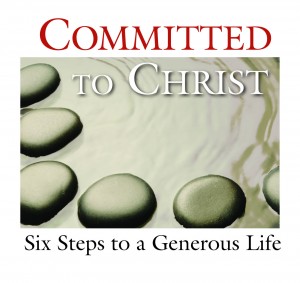
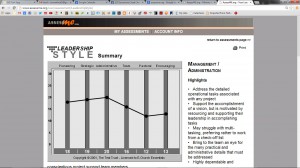
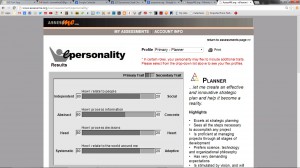
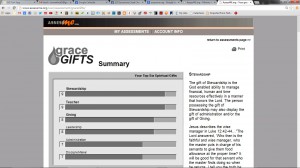
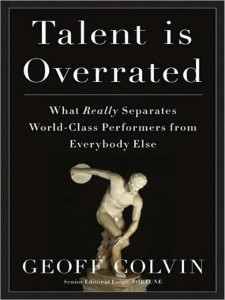

Recent Comments